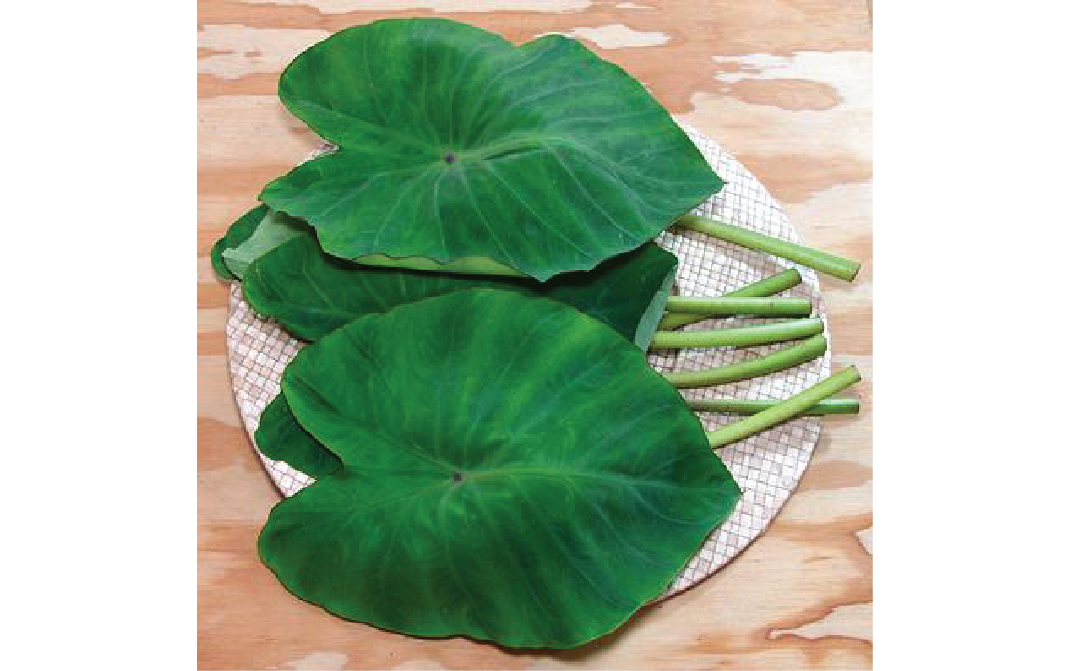


Look for fresh, bright green Colocasia leaves. Avoid if the leaves are limp and not firm.
Oxalate content present in Colocasia leaves can form kidney stones. Colocasia leaves can also cause allergic reactions like redness, itching and irritation on the skin.(2)
- Disclaimer
"Information here is provided for discussion and educational purposes only. It is not intended as medical advice or product or ingredient review/rating. The information may not apply to you and before you use or take any action, you should contact the manufacturer, seller, medical, dietary, fitness or other professional. If you utilize any information provided here, you do so at your own risk and you waive any right against Culinary Communications Private Limited, its affiliates, officers, directors, employees or representatives.”
Description
Colocasia leaves are edible leaves of tropical plant, Colocasia in the family Araceae, widely grown in Southeast Asia and Southern India. The leaves are smooth, heart shaped and deep-green in color with long stems.